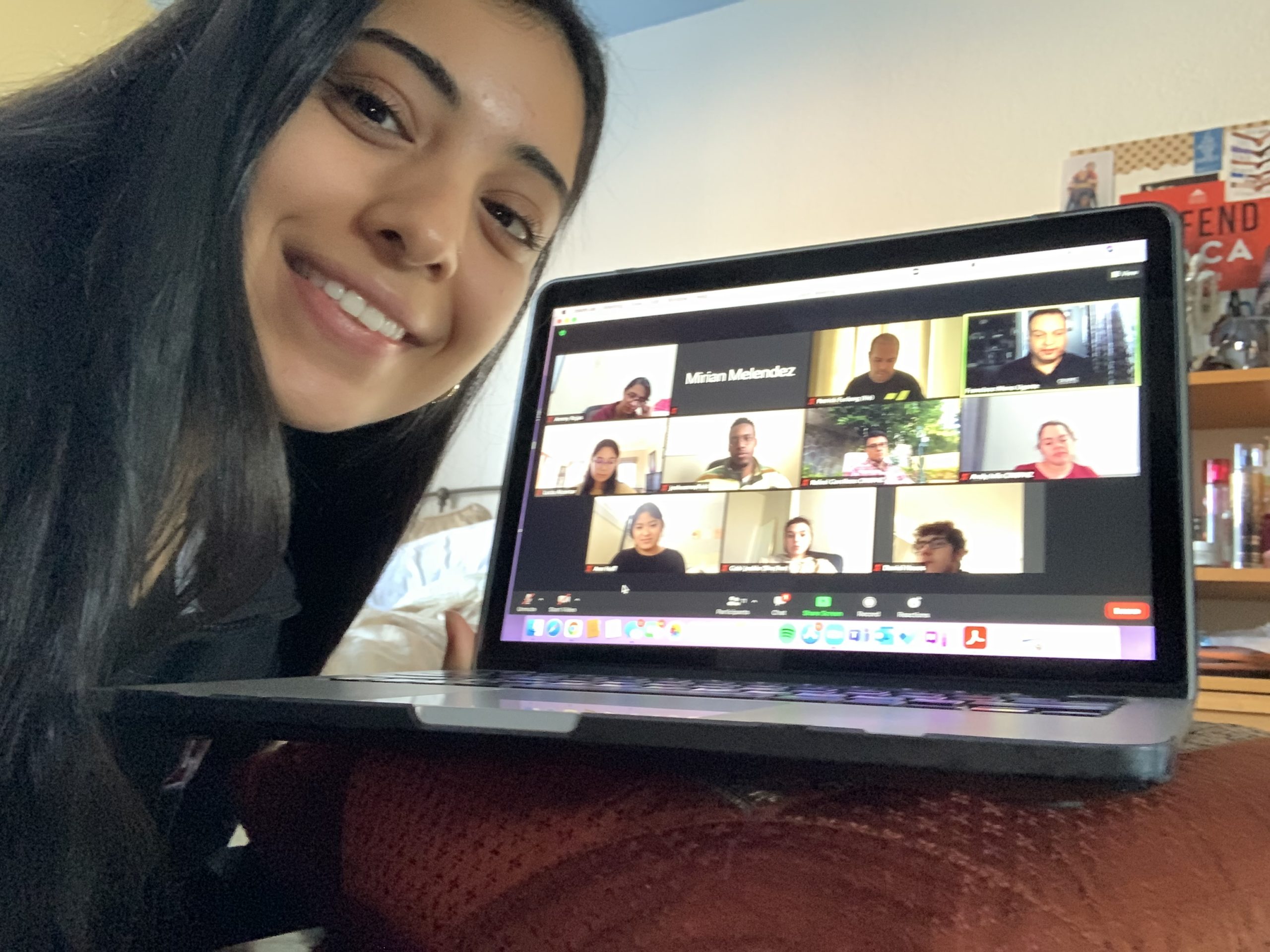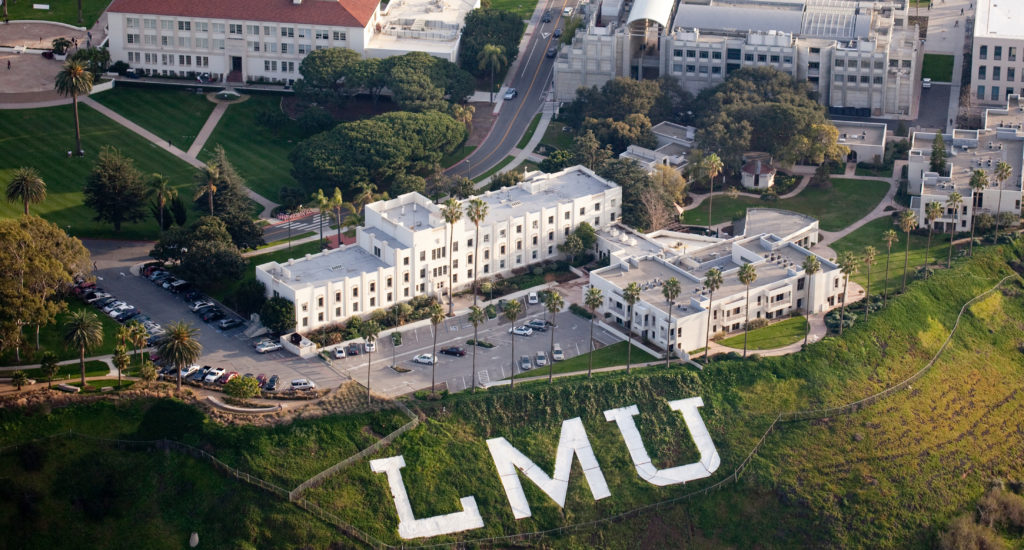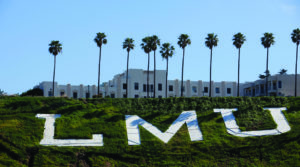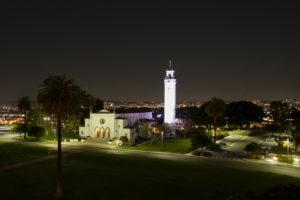CENTER FOR SERVICE AND ACTION | The global pandemic may have altered the look of LMU’s Alternative Breaks program, shifting its signature trips into a virtual format this year. But that doesn’t change its mission of forming men and women for others with service, community and generosity.
“Even though it was virtual, it felt real and personal,” said Ammy Rojas ’21.
LMU’s Alternative Breaks program, a reflection of the university’s robust commitment to social action, met the pandemic crisis with creativity, determination and resistance. The trips to work in, and learn from, other cultures were moved to virtual settings for this semester because of COVID-19 restrictions.
“We were excited, but we were also nervous,” said Patrick Furlong, interim director of the Center for Service and Action. “We had worked really hard to make these experiences a reality, and yet we could not help but wonder: Is this going to work? For me at least, that first night we gathered with the students to reflect, and I heard them laugh and cry as they processed their day, I knew that we were in for a powerful week.”
Alyssa Perez, who started as interim assistant director for Alternative Breaks in March 2020 as the pandemic was unfolding, first had to deal with the challenging tasks of canceling travel, offering refunds and consoling the disappointed participants. Following the decision to plan virtual trips, arrangements were slow to develop as different community partners learned how to pivot to a virtual space, but soon gained momentum. Three outside partners, the Jesuit organization Kino Border Initiative, CRISPAZ and the Center for Global Education and Experience, helped design Alternative Breaks experiences that continue the educational aim and connect LMU students to the global community.
The trip with CRISPAZ was a chance for Campus Ministry and CSA to work together to co-sponsor the trip between CSA’s AB program and Campus Ministry’s Ignacio Companions program. First To Go and Dean Bryant Keith Alexander of the LMU College of Communication and Fine Arts provided support for student participants.
“The success of the virtual Alternative Breaks experiences just goes to show how dedicated our students are at LMU,” Perez said. “I am proud when I talk about this program, because we had 30 students apply to spend part of their break on Zoom, and they continued to show up for almost six hours a day for an entire week. The students showed up for the trip and for the communities that we were meeting with, which was so beautiful to see.”
The time and effort involved in organizing the experiences has been worth it, Perez said. Because Zoom fatigue is a real concern, the programming has been planned with that in mind, so students aren’t trading a trip to a foreign country for six hours in front of a computer monitor.
AB trips are capped at 15 hours to allow for the fullest participation, and a fair amount of experimentation is going into activities and engagement. CSA has subsidized the cost of the experience, setting the price at $30 per participant. Because of the nature of the virtual experience, these programs are available to students who previously might not have been able to participate for a variety of reasons.
“Just because these students couldn’t travel, it didn’t stop them from caring about other people, people they didn’t know or have any reason to get to know, other than they cared,” said Perez. And the students echoed her feelings.
“I think this whole process has taught me to show my people’s (Salvadorans) kindness and patience,” said Melissa Cabrera, a senior international relations major. “As Salvadorans, we’re all very wary of people; trust issues run deep amongst Salvadorans because of the war, so I think if I ever encounter someone from there, I just want to show them kindness.”
Post-trip work is also important for Cabrera. She has already reached out to UNES, and said she cannot wait for a time when she will be able to go back to El Salvador and help CRISPAZ. “I am thankful for all of you and the space you have created and the connections we’ve made,” she said.
Administrators will grow and learn from the experience, too, Furlong said. “First, a virtual experience made international immersions more accessible. It didn’t matter if you didn’t have a passport, you could come. $30 was a price point that felt doable for most students and we still had scholarship support available if it was a challenge. The second thing we learned is, the strength of our global relationships allowed us to take students to an amazing country like El Salvador that we have not been able to travel to in recent years because of travel restrictions.”
The students attested to the value of the experience. “Being in a community we built and traveling virtually to El Salvador, this is what human essence is about,” said Declan Tomlinson, a junior international relations major.
Lucia Alcantar, a senior English major, said that even though the experience happened over Zoom, “I felt connected and this encounter made me feel more human.”
The success of the trips has the CSA staff looking ahead. And even though they can’t wait to travel with students again, they have learned that virtual immersions have value, Furlong said. As CSA grows and evolves its work in justice and advocacy, these experiences will continue play a part in the offerings provided to students.
“The way our students continue to show up for justice during this pandemic is incredible and makes all the hard work of planning and coordinating worthwhile,” Perez said. “I can’t wait to see how the spring 2021 immersions impact even more students’ LMU experience.”




